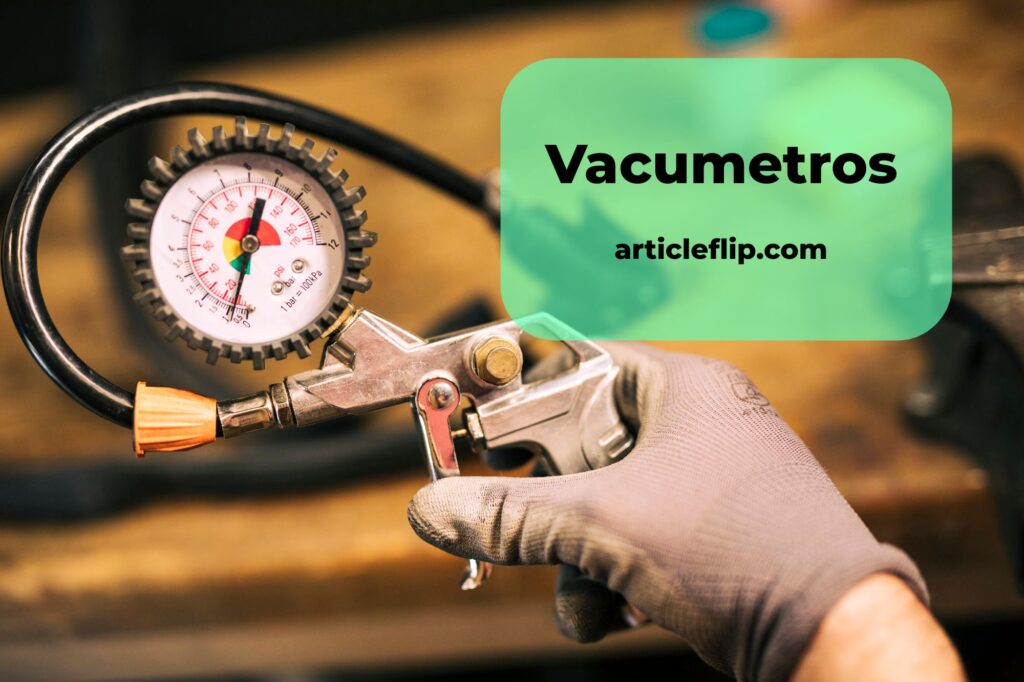Table of Contents
Introduction
Understanding Vacumetros, commonly known as vacuum meters, is essential in various industries and scientific endeavors. These instruments play a pivotal role in measuring and regulating pressure within enclosed spaces, influencing operations and research outcomes significantly.

Types of Vacumetros
- Analog Vacumetros: These traditional vacuum meters provide simple pressure readings through analog displays, suitable for basic industrial applications.
- Digital Vacumetros: Modern vacuum meters equipped with digital displays offer more accurate and precise pressure measurements, catering to diverse industry needs.
- Handheld Vacumetros: Portable and convenient, handheld vacuum meters are often used in on-site inspections and troubleshooting tasks.
How Vacumetros Work
Vacumetros function by utilizing sensors that detect pressure differentials within a given space. These sensors translate the pressure changes into readable measurements, often displayed in units like Torr or Pascal, depending on the device.
Importance in Industries
Vacumetros are indispensable across various sectors:
- Manufacturing: They ensure precise pressure control in manufacturing processes, particularly in sectors like semiconductor production and food packaging.
- Medical and Healthcare: In healthcare settings, vacuum meters regulate pressure in devices like suction machines, vital for surgeries and patient care.
- Scientific Research: Vacumetro contribute significantly to scientific studies involving gases, materials, and environmental conditions, aiding in accurate experiments and observations.
Advantages
- Precision Measurement: Vacumetro offer accurate pressure readings, facilitating precise adjustments crucial for operational efficiency.
- Efficiency in Operations: In industrial settings, these instruments ensure optimal conditions, leading to efficient production processes and high-quality outputs.
Applications
- Semiconductor Manufacturing: Vacumetro are pivotal in maintaining specific pressure levels critical for semiconductor fabrication processes.
- Chemical Laboratories: In laboratories, Vacumetro help create controlled environments essential for various chemical experiments.
- Medical Equipment: They are integral components in medical devices like dialysis machines and vacuum suction systems, ensuring safety and efficacy.
Choosing the Right One
When selecting a vacuum meter, factors such as precision requirements, intended applications, and ease of use should be considered. Different brands offer varied features catering to specific industry needs.
Maintenance Tips
Regular calibration, as per manufacturer guidelines, and proper storage are crucial for ensuring the accuracy and longevity of Vacumetros. Adherence to maintenance routines enhances their performance and reliability.
FAQs
1. How do I calibrate Vacumetros for accurate readings?
Calibration involves adjusting Vacumetros to a known standard pressure. Follow the manufacturer’s provided instructions for calibration procedures specific to your model to ensure precise and accurate readings.
2. Can Vacumetros measure different types of gases?
Some Vacumetro have the capability to measure various gases, depending on their design and specifications. It’s essential to check the features and specifications of the particular model to determine its gas measurement capabilities.
3. Are Vacumetros user-friendly for operators?
Yes, modern Vacumetro are typically designed with user-friendly interfaces and intuitive controls. They often come with clear instructions, making them relatively easy for operators across different industries to use.
4. What safety measures should one follow while using Vacumetros?
Adhering to safety measures is crucial. Always follow the manufacturer’s safety guidelines and wear appropriate protective gear while handling Vacumetro. Proper storage and handling practices are necessary for safe usage.
5. How effectively can Vacumetros detect leaks?
Correctly calibrated Vacumetro can effectively detect leaks by measuring pressure variations. Regular checks using these instruments can help identify and address potential leaks, contributing to system safety and integrity.
6. How frequently should Vacumetro undergo servicing?
The frequency of servicing Vacumetro can vary based on usage, environmental conditions, and manufacturer recommendations. Generally, regular maintenance and calibration are recommended to maintain accuracy and optimal performance. Following the manufacturer’s suggested servicing intervals is advisable.
Conclusion
In conclusion, Vacumetro are indispensable tool in various industries and scientific research. Their ability to provide accurate pressure readings, facilitate efficiency, and contribute to advancements underscores their significance in ensuring optimal operations and technological progress.
If you found our content helpful don’t forget to share it on your social media: Twitter
More Related Articles
